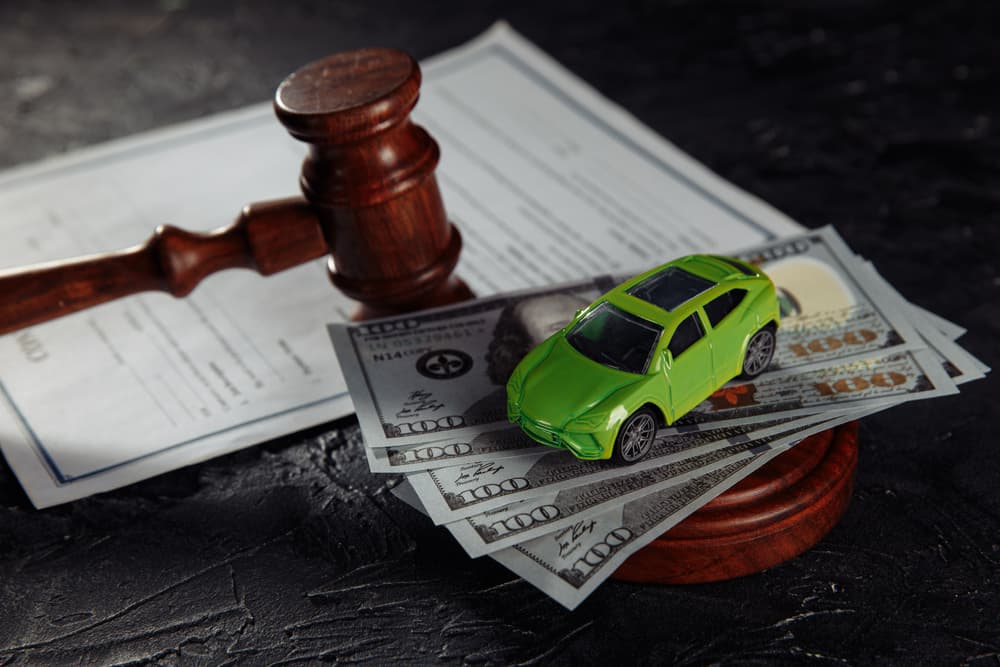Quick Answer
What to Know About CT Car Accident Laws
If you’ve been left confused or distressed from a serious car accident, you’re not alone. In a 5-year study, there were over 500,000 car accidents in Connecticut alone—that’s more than 270 car accidents every single day for five years.
Depending on the severity of the motor vehicle accident, recovering may require mental, emotional, physical, and financial support. Sometimes, that means turning to the law to receive the support you deserve.
When you or someone you love has been in a car accident, the last thing you probably want to do is wade through confusing legal bureaucracy. An experienced CT car accident lawyer can help you navigate your accident, but oftentimes you’ll want to have a handle on all the jargon yourself. That said, understanding CT car accident laws—and how they affect you—can help you financially recover from an accident.
Understanding Automobile Accidents in Connecticut
Each state has slightly different laws when it comes to preparing for and handling auto accidents. Generally, you’ll want a basic understanding of the minimum car insurance required, the statute of limitations in CT for car accidents, and other state-specific legal factors that affect car accidents.
Connecticut Car Insurance Required
Connecticut requires every driver to have a certain level of insurance.
If you cause an auto accident, your insurance has to cover at least $25,000 per person injured, $50,000 if two or more people are injured, and $25,000 for property damage. That means any driver you have an accident with should also meet this car insurance threshold.
Once you’ve made sure everyone involved in an accident is safe, the next step is exchanging insurance information so that you can both file claims with your respective insurance companies.
Connecticut Statute of Limitations
If you’re in an automobile accident and you want to file a personal injury lawsuit, Connecticut requires you to do so during the first two years after the accident. After that point, the person you’re suing can try to have the case dismissed by arguing that you filed the case after the statute of limitations has passed.
If the worst happens and someone dies as a result of a car accident, their loved ones can file a wrongful death suit. The statute of limitations for a wrongful death suit is also two years in Connecticut, but the two years countdown starts when the person passes, not when the accident happens. So if someone is injured in a car accident and dies a few weeks later as a result of those injuries, their loved ones can file a wrongful death suit up to two years after the date of their passing.
Connecticut’s Comparative Negligence Laws
The term “comparative fault” describes a car accident that was caused by more than one person making a mistake.
In Connecticut, if someone is injured in an accident that they’re more than 50% responsible for causing, they can’t receive any personal injury payments from the other drivers involved. So, if Driver A is 30% responsible for the accident and Driver B is 70% responsible for the accident, only Driver A can receive payments—known as “damages.” The damages they’re owed will be reduced by a percentage that matches how responsible they are for the accident. So Driver A will receive a smaller payment than if they were 20% responsible.
If there’s another driver in the accident who’s totally innocent, that driver would receive a full payment with zero reductions since they’re not at fault. This system makes Connecticut a “modified comparative negligence” state.
If this sounds complicated, don’t worry. A legal team can help walk you through how it applies to your specific case. But the takeaway is, even if you’re partly responsible for a car accident, it may still make sense to file a lawsuit. Knowing your legal options in Connecticut—and how to make the most of them—can help you recover financially from the impact of being in a car accident.
What it Means that Connecticut is No Longer a No-Fault State
Different states can have different laws about what insurance companies are required to pay, and when, as well as when people in a car accident can file a lawsuit. So, is CT a no-fault state?
Prior to 1994, Connecticut was a no-fault state. That meant:
- Drivers could recover financial losses from their own car insurance company, no matter who caused the accident
- People couldn’t file a car accident lawsuit unless their injury was considered severe enough
These days, Connecticut is no longer a no-fault state. That means if you’re injured in an auto accident caused by another driver, you could receive a payment from the other driver’s insurance company. If they don’t pay you, you can sue the other driver in court. There’s no longer a requirement that your injury is incredibly severe for you to sue.
Consulting a legal team can help you decide if it makes sense for you to pursue a lawsuit against the other driver (or drivers) involved in your accident.
Preparing for a Potential Car Accident Lawsuit
If you think you might want to take legal action following your car accident, it can help to know what to expect—and to plan ahead for potential challenges.
Try following these tips for a smoother and more effective planning process:
- File your insurance claim as soon as possible – Many insurance companies require you to file an insurance claim shortly after any accident. There are also potential benefits for you if you file promptly. If your insurance company determines you’re owed a payment—also called “insurance proceeds”—filing makes it possible for your insurance company to put the payment process in motion. Importantly, you don’t have to know which car was at fault to file a car accident claim.
- Understand how long settling can take – One of the challenges of recovering from a car accident is that you can’t know exactly how long a lawsuit will take. Typically, car accident lawsuits in Connecticut take years to settle. Simpler cases can settle more quickly, while more complex cases may take more time. You may also want to wait a year after the accident before settling your case—sometimes, it can take time to realize the extent of an injury caused by a motor vehicle accident. Receiving a free case evaluation can help you learn more about what to expect in terms of your specific case.
- Explore alternative financial resources – About 56% of Americans would struggle if faced with a $1,000 emergency. Because it can take time to settle a car accident case, it may make sense to explore non-legal support options in the meantime and research on the average car accident settlement in CT. An expert can help you apply for grants and charitable gifts, as well as compare and apply for cash advance options.
- Keep the statute of limitations in mind – As noted above, you have two years from the date of your accident to file a lawsuit in Connecticut. Two years can fly by faster than you think, so if you think you might want to pursue a lawsuit, talking to a legal team sooner rather than later can help you keep your options open.
Once you decide on legal action, it’s time to make an important decision—which legal team feels right for you and can truly help you recover from your accident.
Using a Free Case Consultation to Help Choose a Legal Team
Different legal teams offer different strengths and benefits. Many personal injury legal teams offer a free case consultation to prospective clients. It’s an opportunity for them to learn more about you and whether they’re a good fit for your case. It’s also an opportunity for you to learn more about what it would look like to work with them.
In addition to asking questions about your specific case, we recommend you ask questions about the following areas:
- Fee structure – When you’re evaluating which legal team to work with, we recommend asking questions about fee structure. Most personal injuries will take a certain percentage of your settlement as their fee, but the exact amount of that percentage can vary.
- Holistic vs. singular focus – It can also help to ask yourself whether you’re looking for just a car accident lawyer, or more holistic support as you recover from your accident.
Knowing what kind of support you’re looking for can help you determine which legal team makes the most sense for you.
Start Recovering From Your Car Accident
At Mighty, we know a car accident doesn’t just hit your pocketbook. From finding medical care and navigating car insurance policies to taking legal action, recovering from a car accident can ask a lot of you when you’re already feeling vulnerable. That's why Mighty has put together a directory of trusted attorneys that can help you get the legal representation and support you need.
Head to Mighty's Car Accident Attorney Directory to find a trusted attorney in your area today.
Sources
Car and Driver. Do I Have to File a Claim After an Accident? Everything You Need to Know. https://www.caranddriver.com/car-insurance/a36166153/do-i-have-to-file-a-claim-after-an-accident/
CGA. NO-FAULT AUTOMOBILE INSURANCE. https://www.cga.ct.gov/2016/rpt/2016-R-0255.htm#:~:text=Connecticut%20is%20no%20longer%20a,of%20who%20caused%20the%20loss. =
Insurance Institute for Highway Safety. Fatality Facts 2020 State by state. https://www.iihs.org/topics/fatality-statistics/detail/state-by-state#crash-types
NBC. 56% of Americans can’t cover a $1,000 emergency expense with savings. https://www.cnbc.com/2022/01/19/56percent-of-americans-cant-cover-a-1000-emergency-expense-with-savings.html
NOLO. Connecticut Car Insurance Requirements. https://www.nolo.com/legal-encyclopedia/connecticut-car-insurance-requirements.html
Know Your Claim’s Worth—and Settle It
Serious injury or no injury at all, move your case forward instantly from your phone.
Thank you for submitting your information.

About the author
Luke is a warm-hearted and highly skilled legal operations expert with an impressive 8-year track record in the personal injury field. As the Client Operations Lead at Mighty, he is dedicated to providing exceptional support, transparent communication, and genuine empathy to clients during their challenging journey. His expertise in streamlining processes and implementing cutting-edge technology makes him an indispensable ally for clients, case managers, and attorneys in their pursuit of justice.




.jpeg)

